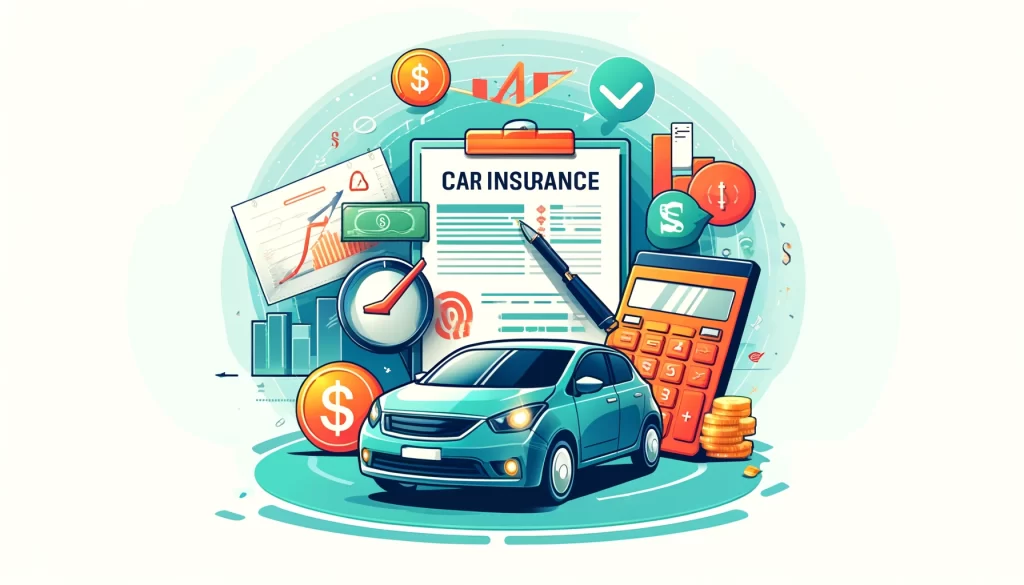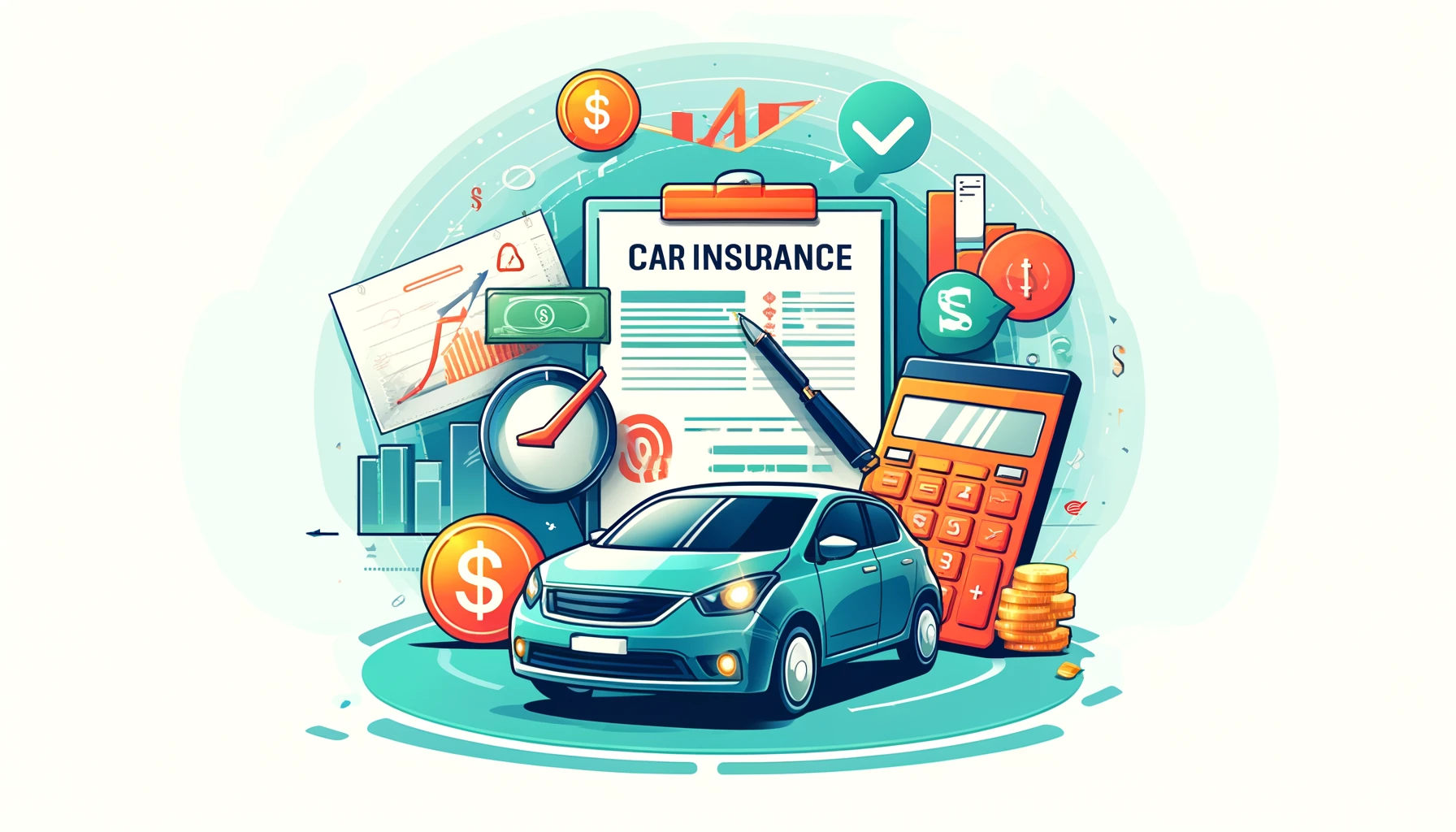When it comes to understanding car insurance rates, many drivers find themselves confused and overwhelmed. Car insurance rates can vary widely based on a number of factors, and getting a good grasp on what influences these rates can help you make informed decisions about your coverage. In this comprehensive guide, we’ll break down the key elements that affect car insurance rates, explore ways to lower your premiums, and offer tips on how to get the best deal. Whether you’re a new driver or looking to switch providers, this guide will provide you with the knowledge you need to navigate the world of car insurance with confidence.

- Understanding Car Insurance Rates
- Conclusion
Understanding Car Insurance Rates
1. What Are Car Insurance Rates?
Car insurance rates refer to the amount you pay for your car insurance policy. These rates are typically expressed as a monthly or annual premium. Insurance companies calculate these rates based on the risk they associate with insuring you and your vehicle. The higher the perceived risk, the higher your car insurance rates will be.
Factors Influencing Car Insurance Rates
There are several factors that insurance companies consider when determining your car insurance rates. Some of these factors include:
- Age and Gender: Younger drivers, especially teenagers, often face higher car insurance rates due to their lack of driving experience. Similarly, male drivers under the age of 25 typically pay more than their female counterparts.
- Driving Record: Your driving history plays a significant role in determining your car insurance rates. Drivers with a history of accidents or traffic violations are considered high-risk and usually face higher premiums.
- Location: Where you live can impact your car insurance rates. Urban areas with higher traffic and crime rates often result in higher premiums compared to rural areas.
- Type of Vehicle: The make, model, and year of your vehicle can affect your car insurance rates. High-performance or luxury cars usually come with higher premiums.
- Credit Score: In many states, insurance companies use credit scores to help determine car insurance rates. A lower credit score can lead to higher premiums.
2. How Are Car Insurance Rates Calculated?
Insurance companies use complex algorithms and actuarial data to calculate car insurance rates. These calculations involve assessing the risk associated with insuring a particular driver and vehicle. Here’s a closer look at some of the key components used in this process:
Risk Assessment
Insurance companies evaluate various risk factors to determine the likelihood of a policyholder filing a claim. These factors include:
- Driving History: Past behavior is often an indicator of future behavior. If you have a clean driving record, you’re considered a lower risk, which can lead to lower car insurance rates.
- Claims History: If you’ve filed multiple claims in the past, insurers may view you as a higher risk, resulting in higher premiums.
- Vehicle Usage: How often and how far you drive can influence your car insurance rates. Higher mileage can increase the risk of accidents, leading to higher premiums.
Statistical Models
Actuarial models are used to predict the probability of various events, such as accidents or thefts. These models rely on historical data and statistical analysis to determine car insurance rates. The models consider:
- Demographic Information: Age, gender, and marital status can all influence car insurance rates based on statistical trends.
- Geographical Data: The location where you live and drive is analyzed to assess the likelihood of accidents and thefts in that area.
3. Ways to Lower Your Car Insurance Rates
While car insurance rates are influenced by many factors beyond your control, there are several strategies you can use to potentially lower your premiums. Here are some tips to help you save on car insurance:
Shop Around for Quotes
One of the best ways to ensure you’re getting the best car insurance rates is to shop around and compare quotes from multiple providers. Each insurance company has its own formula for calculating premiums, so rates can vary significantly between companies.
Take Advantage of Discounts
Many insurance companies offer discounts that can help lower your car insurance rates. Common discounts include:
- Safe Driver Discounts: If you have a clean driving record, you may qualify for lower premiums.
- Bundling Discounts: If you combine your car insurance with other policies, such as homeowners or renters insurance, you can often receive a discount.
- Good Student Discounts: Young drivers who maintain good grades in school may be eligible for reduced rates.
Increase Your Deductible
Opting for a higher deductible can lower your car insurance rates. However, it’s important to ensure you can afford to pay the higher deductible in the event of a claim.
4. The Impact of Coverage Levels on Car Insurance Rates
The amount of coverage you choose has a direct impact on your car insurance rates. Understanding the different types of coverage and how they affect your premiums is crucial for making informed decisions.
Types of Coverage
- Liability Coverage: This is the minimum required coverage in most states. It covers damages to other people and their property if you’re at fault in an accident. Higher liability limits result in higher premiums.
- Collision Coverage: This coverage pays for repairs to your vehicle after an accident, regardless of fault. Adding collision coverage increases your car insurance rates.
- Comprehensive Coverage: This covers damage to your vehicle from non-collision events, such as theft, vandalism, or natural disasters. Like collision coverage, comprehensive coverage raises your premiums.
- Uninsured/Underinsured Motorist Coverage: This protects you if you’re involved in an accident with a driver who doesn’t have sufficient insurance. Including this coverage can increase your rates.
Balancing Coverage and Cost
When selecting coverage levels, it’s important to strike a balance between adequate protection and affordable car insurance rates. Consider factors such as the value of your vehicle, your financial situation, and your risk tolerance when choosing your coverage.
5. The Role of Credit Scores in Car Insurance Rates
Your credit score can play a significant role in determining your car insurance rates. Many insurance companies use credit-based insurance scores as part of their risk assessment process.
How Credit Scores Affect Car Insurance Rates
Research has shown a correlation between credit scores and the likelihood of filing insurance claims. As a result, insurers often use credit scores to help predict risk. Here’s how your credit score can influence your car insurance rates:
- Good Credit: A high credit score indicates responsible financial behavior and is associated with lower risk. Drivers with good credit often enjoy lower car insurance rates.
- Poor Credit: A low credit score can signal higher risk to insurers, leading to higher premiums. Improving your credit score can help reduce your car insurance rates over time.
Improving Your Credit Score
If your credit score is impacting your car insurance rates, there are steps you can take to improve it:
- Pay Bills on Time: Consistently paying your bills on time is one of the most important factors in maintaining a good credit score.
- Reduce Debt: Lowering your overall debt can positively impact your credit score.
- Check for Errors: Regularly review your credit report for any errors or inaccuracies that could be affecting your score.
6. Comparing Car Insurance Rates: Tips and Tools
Comparing car insurance rates is essential for finding the best deal. With so many factors influencing premiums, it’s important to use the right tools and strategies to make an informed decision.
Online Comparison Tools
There are several online tools available that can help you compare car insurance rates from different providers. These tools allow you to enter your information once and receive quotes from multiple companies, making it easy to compare options side by side.
Understanding Policy Details
When comparing car insurance rates, it’s important to look beyond the premium and consider the details of each policy. Pay attention to factors such as:
- Coverage Limits: Ensure the coverage limits meet your needs.
- Deductibles: Consider the deductibles for different types of coverage.
- Exclusions: Be aware of any exclusions or limitations in the policy.
Working with an Insurance Agent
An insurance agent can provide personalized assistance in comparing car insurance rates and finding the best policy for your needs. They can help explain complex terms, identify potential discounts, and ensure you’re getting adequate coverage.
Conclusion
Understanding car insurance rates is essential for making informed decisions about your coverage. By knowing what factors influence your premiums, how rates are calculated, and ways to lower your costs, you can navigate the world of car insurance with confidence. Remember to shop around, take advantage of discounts, and consider your coverage needs carefully. With the right knowledge and strategies, you can find car insurance rates that fit your budget and provide the protection you need.
If you have any questions or experiences to share about car insurance rates, feel free to leave a comment below. We’d love to hear from you!

rQkmvJIRo
[…] settle for the first quote you receive. Compare rates from multiple insurance providers to find the best deal. Use online comparison tools to make the process […]